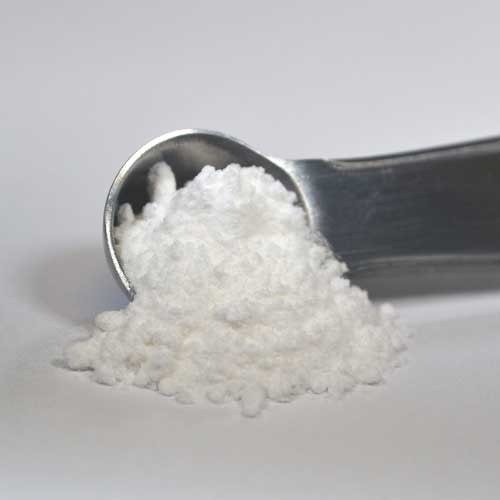A few years back, it seemed like glutamine was the ultimate overhyped supplement. It could single-handedly support your immune system, reduce soreness, and cure world hunger. Today, it's the ultimate whipping boy for supplement skeptics.
So let's tackle the question head on: If you're a healthy, physically active individual, is there any real benefit to taking glutamine? The answer might surprise you.
Understanding Glutamine In Your Body
Glutamine is the most abundant amino acid in your body. It's critical to numerous processes, including nitrogen transport, acid-base regulation, and antioxidant formation. Supplementation of glutamine is thought to help support immune health, because these systems use glutamine instead of glucose as preferred fuel. While the research on glutamine supplementation in healthy individuals is somewhat muddy, it may be useful in scenarios such as hard training.
Here are two good reasons athletes and serious fitness buffs may want to supplement with glutamine.
1. You Recover Faster When Low-Carb By Taking Glutamine Post-Workout
An oft-overlooked feature of glutamine is its possible support of glucose production and glycogen replenishment. In the liver, glutamine assists with gluconeogenesis, a fancy word for the creation of glucose from noncarbohydrate sources, like fat. This can account for as much as 25 percent of total circulating glucose in your body!
Research has shown that 8 grams of glutamine, when taken with a carbohydrate drink, can boost glycogen replenishment in muscle and liver tissue following exhaustive exercise significantly more than if you were to consume just carbs. That's good news for fueling tomorrow's demanding workout!
But here's the thing: Even without a heavy dose of carbs, glutamine has been suggested to support glycogen storage, making it a good option for those following a low-carb diet.
The takeaway: Consider adding 8-10 grams to any post-workout shake to speed up the recovery process and to boost performance during your next training session, particularly if you are following a low-carb diet.
2. Glutamine Helps Leucine Stimulate Muscle Growth
One of the most intricate—and in my opinion, most interesting—properties of glutamine is its relationship with the amino acid leucine and their combined effect on muscle growth.
A quick background: Mammalian target of rapamycin (mTOR) is the head honcho in charge when it comes to muscle growth. The mTOR pathway can be activated in various ways, one of which is by the amino acid leucine. But glutamine is what transports leucine into the muscle cell in the first place. Furthermore, in the absence of glutamine, leucine cannot be transported into the cell, and mTOR isn't activated, even in the presence of other growth factors.
I wouldn't go so far as to say glutamine alone will get you jacked, but it definitely helps leucine do its crucial work. This work includes both spurring new muscle growth and preserving existing muscle mass, particularly during times of caloric restriction or intense training. Perhaps it shouldn't be surprising, then, that glutamine has been suggested to support the overall health and resiliency of athletes who challenge their immune (not to mention muscular) systems through prolonged endurance exercise.
Treat glutamine as more than just your average recovery supp. If you already take BCAAs or a whey protein supplement, it may benefit you to add extra glutamine to further the benefits of leucine on muscle-protein synthesis. If you're an in-season athlete or someone else who is red-lining your recovery abilities for months on end, it might help you to avoid muscle loss or becoming immunocompromised.
The takeaway: Take glutamine at times when you're most at risk of overtraining or muscle loss: during overreaching or peaking cycles, during a period of intense endurance training or cross-training, or whenever else your body is being pushed to its limit for weeks or months at a time.
Source: http://www.bodybuilding.com/





